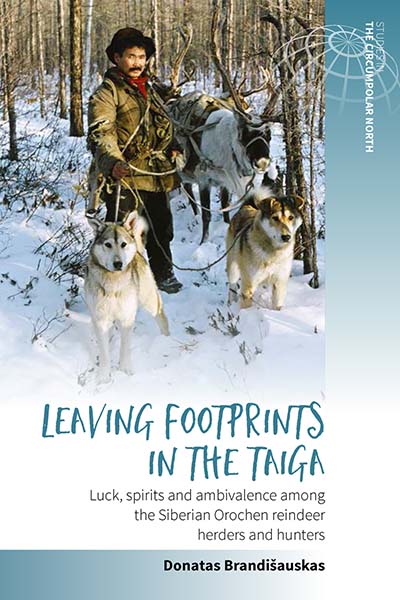“[The author’s] personal insights are weighed alongside observations made in previous studies of Siberian hunters, recent as well as decades old. The resulting synthesis offers a compelling ethnographic analysis that touches on many topics of current interest to anthropologists, from cultural renewal in Indigenous communities to the challenges posed by environmental and economic changes sweeping the world today. – Recommended. “ • Choice
“Each chapter contains rewarding ethnographic expositions, but the penultimate chapter on ‘Rock art, shamans and healing’ and the re-creation of sacred landscapes stands out as unique… This book is recommended for advanced undergraduate and postgraduate students as well as specialists of fortune, luck, hunting, shamanism, the landscape, and archaeology within Siberia and beyond.” • Journal of the Royal Anthropological Institute (JRAI)
“…a substantial piece of writing because of its scientific complexity, describing in detail the life and beliefs of Zabaikal’ia’s reindeer herders and its richness in language and descriptions that would excite not only a professional of the field but also the general public… This is a book worth reading since it gives a glimpse of how people live in remote places and how they are looking for knowledge in the traditions and the ways of the lives of their ancestors to build their own, to recover from the Soviet control.” • Anthropological Notebooks
“This book is well conceived, well written and well presented. It provides a smooth yet detailed history of events in the study of extreme climatic conditions during the Cold War.” • International Journal of Environmental Studies
“Combining a careful and detailed analysis of historical ethnographic sources with his own rich and prolonged fieldwork experience, Donatas Brandišauskas provides us with ample, detailed and fresh insights into Orochen ways of living and hunting in the taiga.” • Inner Asia (INAS)
“Leaving Footprints in the Taiga is, in so many ways, a wonderful book…While [it] is based on a great deal of ethnographic knowledge and expertise, it nevertheless raises larger questions about the anthropology of Siberia and the North, as well as an anthropology that centers on indigenous issues.” • Slavic Review
“This vivid, well written and admirable analysis will be interesting not only to ethnologists and social anthropologists, but also to everyone who is interested in wildlife and how people live in the wild.” • International Journal of Environmental Studies
“While Brandišauskas underplays theory, he makes an important and engaging contribution to the debate [of the ontological turn], namely to show, through the prosaic details of walking through the taiga, what it is to have a social relationship with an animate landscape.” • The Russian Review
“The ethnographic material and his theoretical argument makes the book a worthwhile contribution to anthropological knowledge about Siberian hunter/herders specifically and about hunter/herders and indeed all humans who must carve out a living in relation to their natural and supernatural environments—which means all humans—generally.” • Anthropology Review Database
“This is an outstanding piece of original anthropological research based on long-term fieldwork in Siberia. The insights from the field are neatly interwoven with theoretical discussions and deeper reflexive engagement with the wider research literature. The result is a compelling and insightful study that will stimulate widespread discussion and debate.” • Peter Jordan, University of Groningen
“This book makes an important contribution to the literature on herding and hunter societies in the twenty-first century, societies faced with adapting to rapid environmental and social change.” • Gail Fondahl, University of Northern British Columbia
Nowhere have recent environmental and social changes been more pronounced than in post-Soviet Siberia. Donatas Brandišauskas probes the strategies that Orochen reindeer herders of southeastern Siberia have developed to navigate these changes. “Catching luck” is one such strategy that plays a central role in Orochen cosmology -- luck implies a vernacular theory of causality based on active interactions of humans, non-humans, material objects, and places. Brandišauskas describes in rich details the skills, knowledge, ritual practices, storytelling, and movements that enable the Orochen to “catch luck” (or not, sometimes), to navigate times of change and upheaval.
Donatas Brandišauskas is Professor at the Institute of Asian and Transcultural Studies and Senior Researcher at the Department of History at Vilnius University in Lithuania. He is Associate Researcher at the Centre of Arctic and Siberian Exploration at the Russian Academy of Science, and Associate Researcher at the University of Versailles (CEARC) in France.
LC: DK759.O7 B73 2016
BL: DRT ELD.DS.152724
BISAC: SOC002010 SOCIAL SCIENCE/Anthropology/Cultural & Social; SOC062000 SOCIAL SCIENCE/Indigenous Studies
BIC: JHMC Social & cultural anthropology, ethnography; JFSL9 Indigenous peoples


